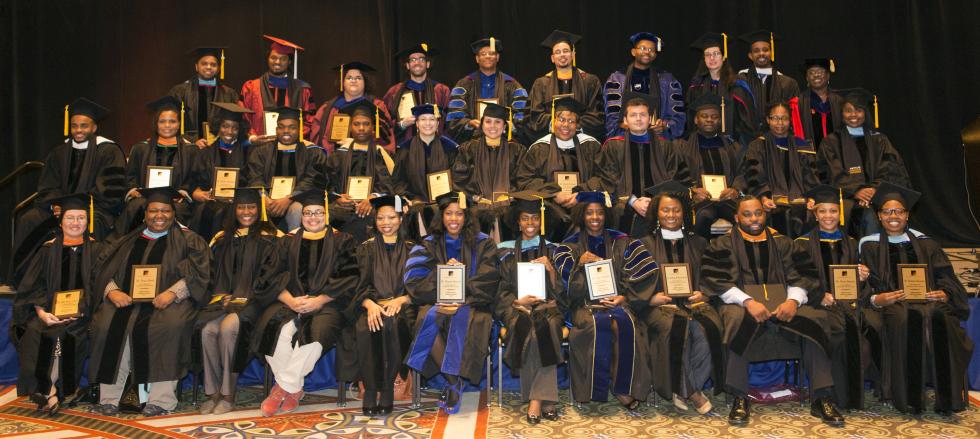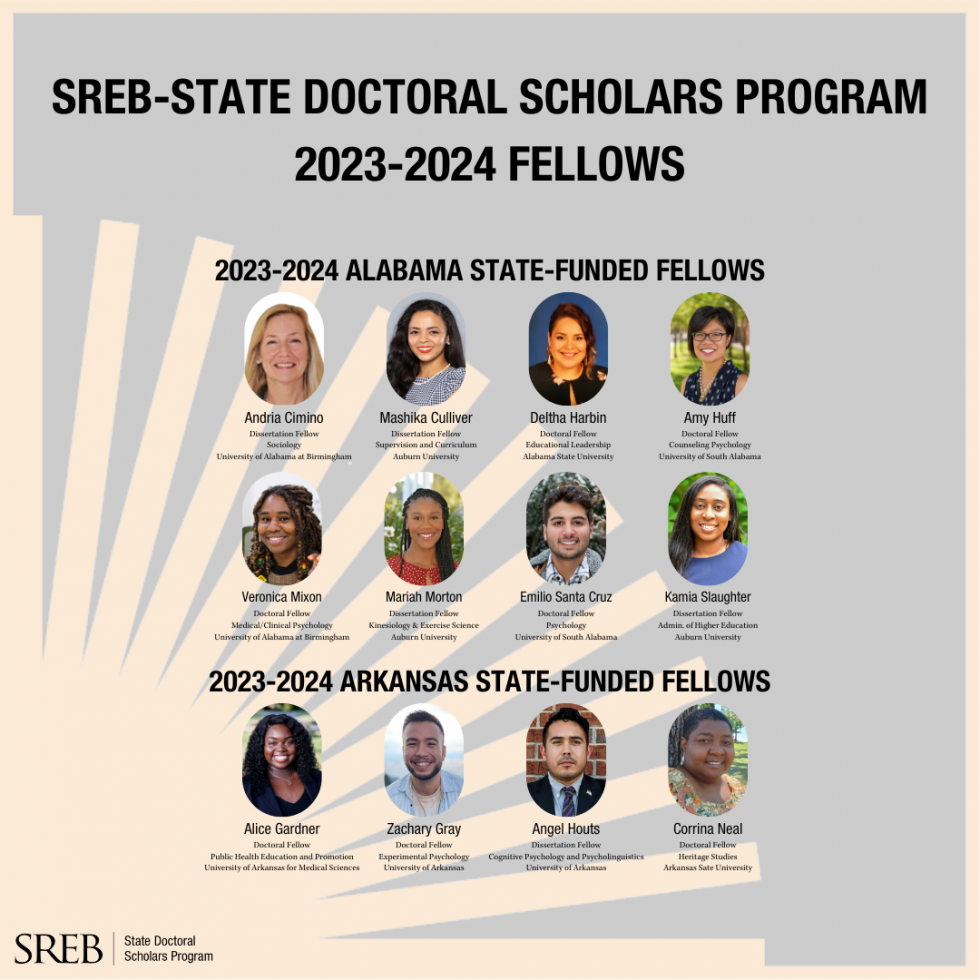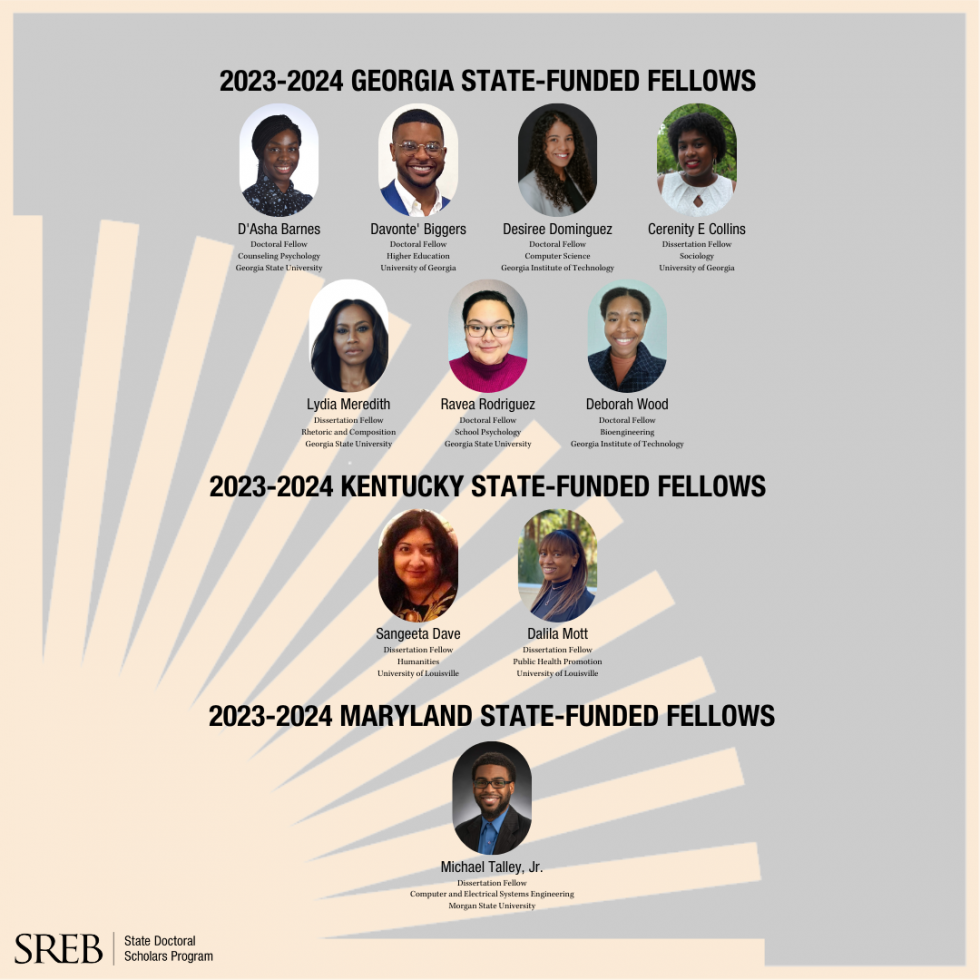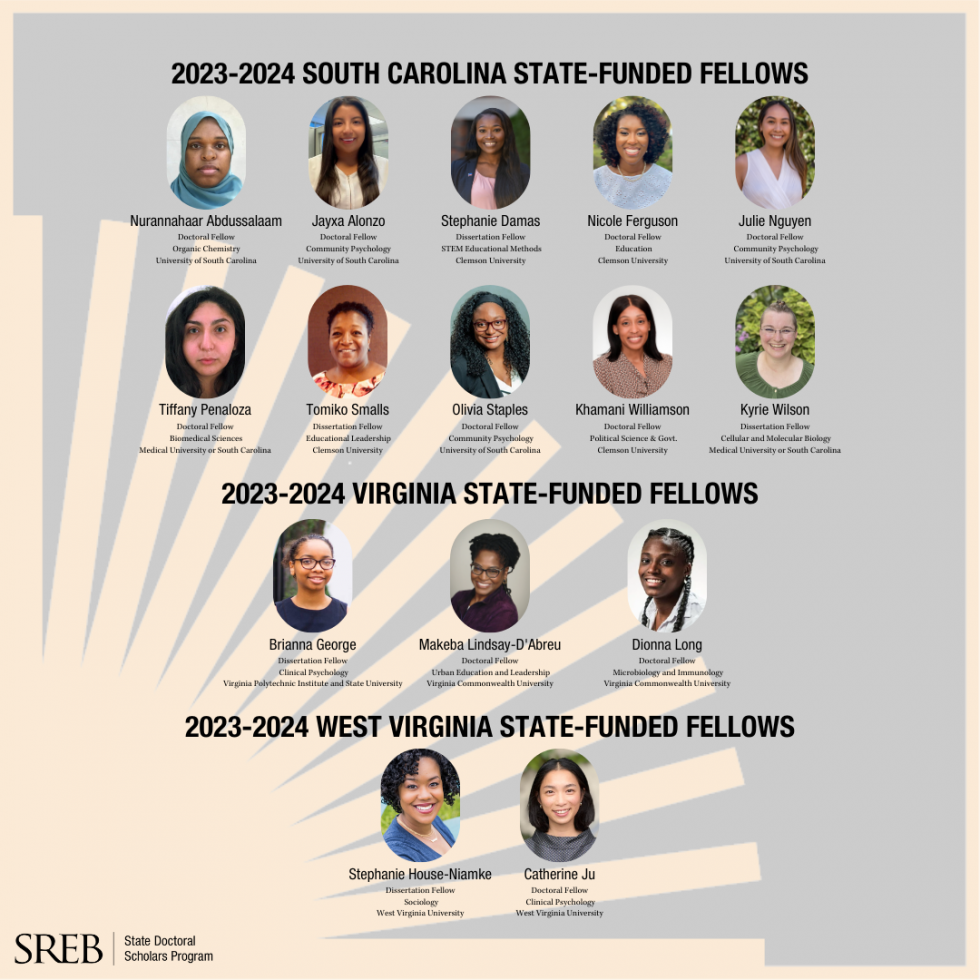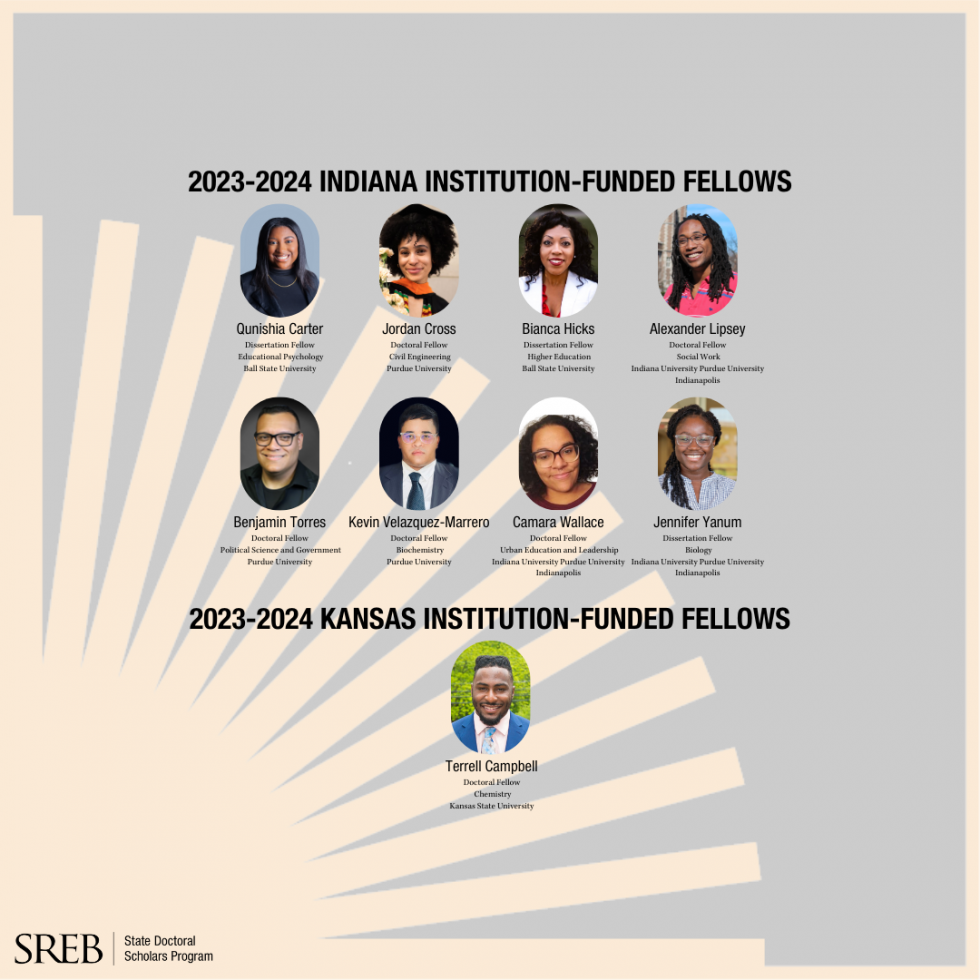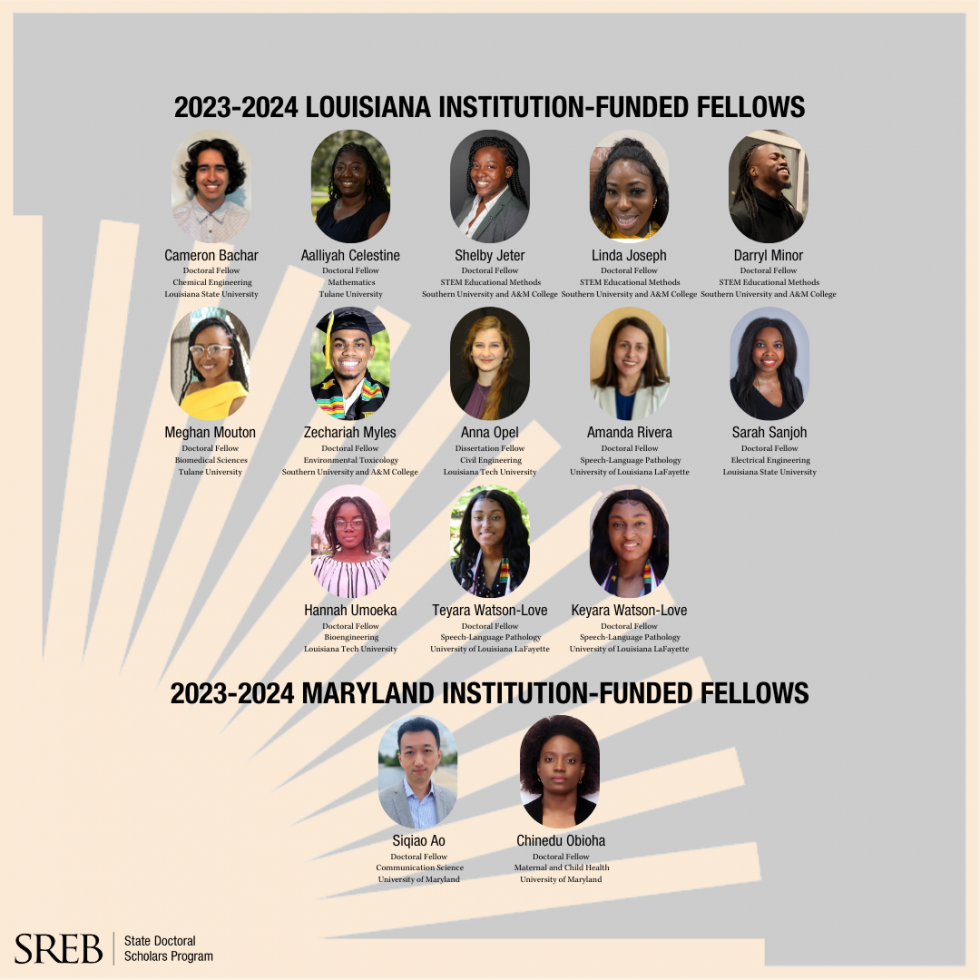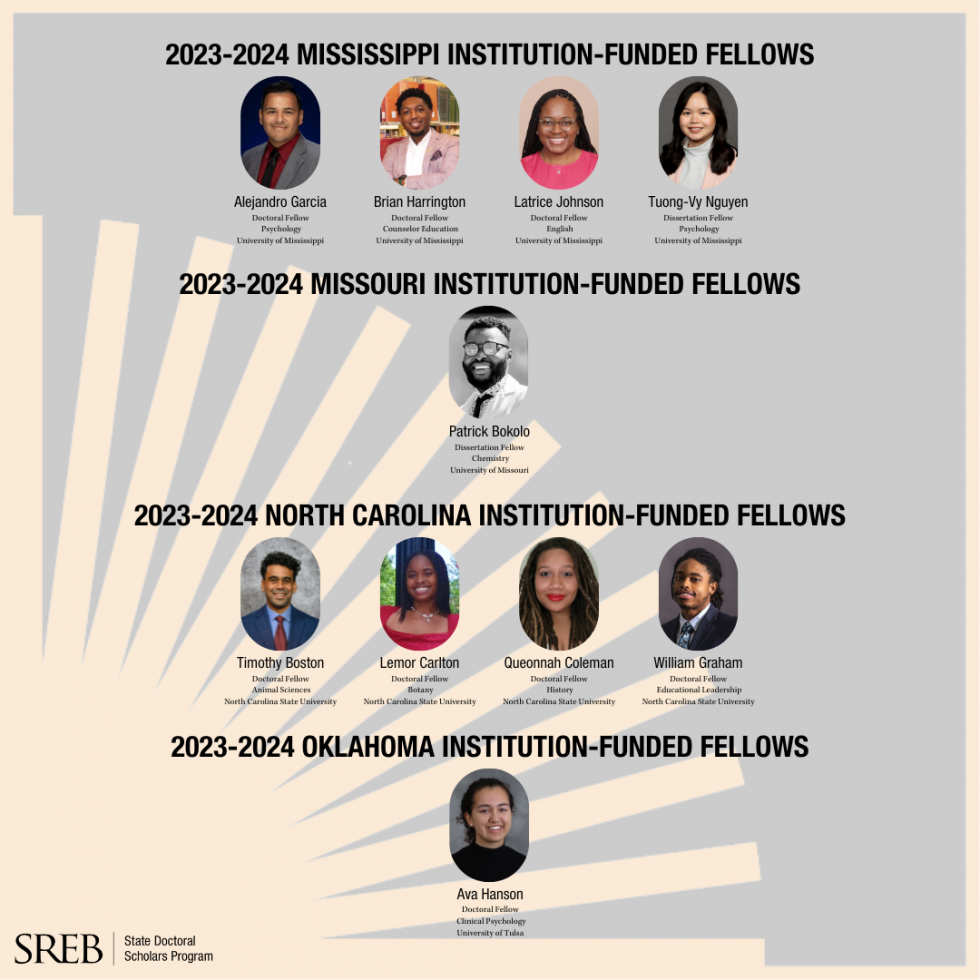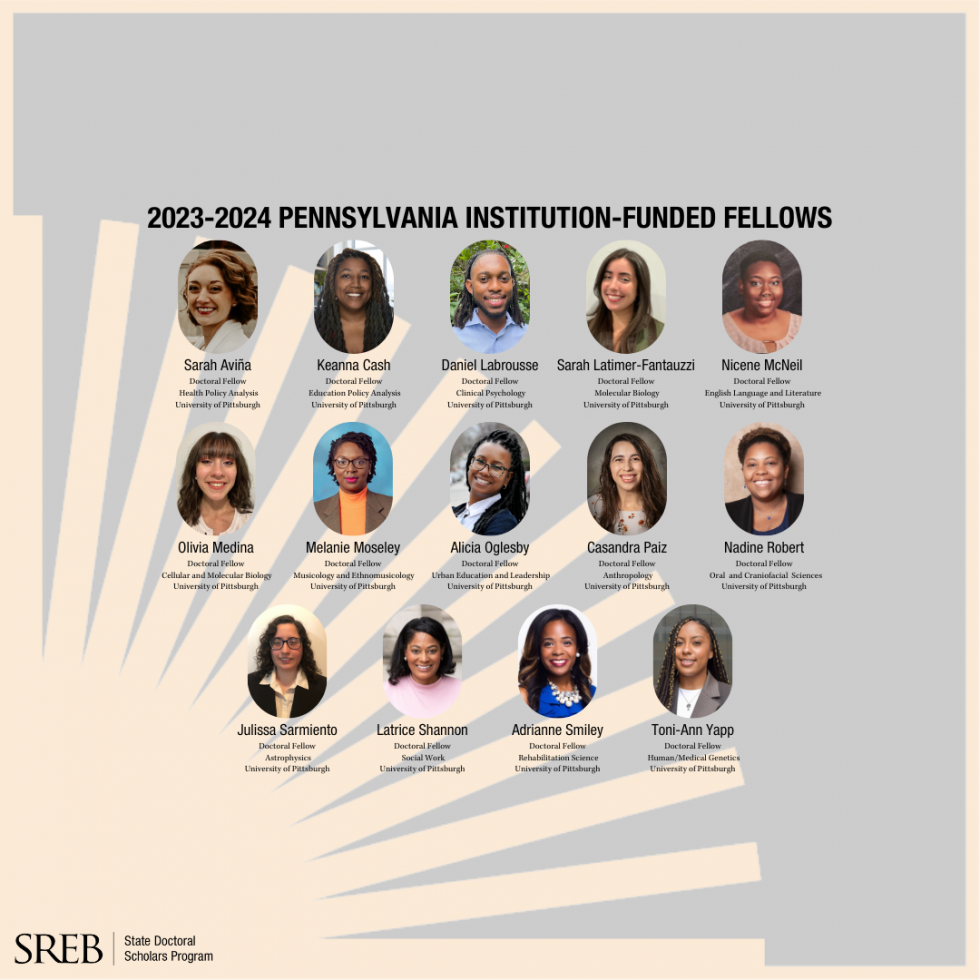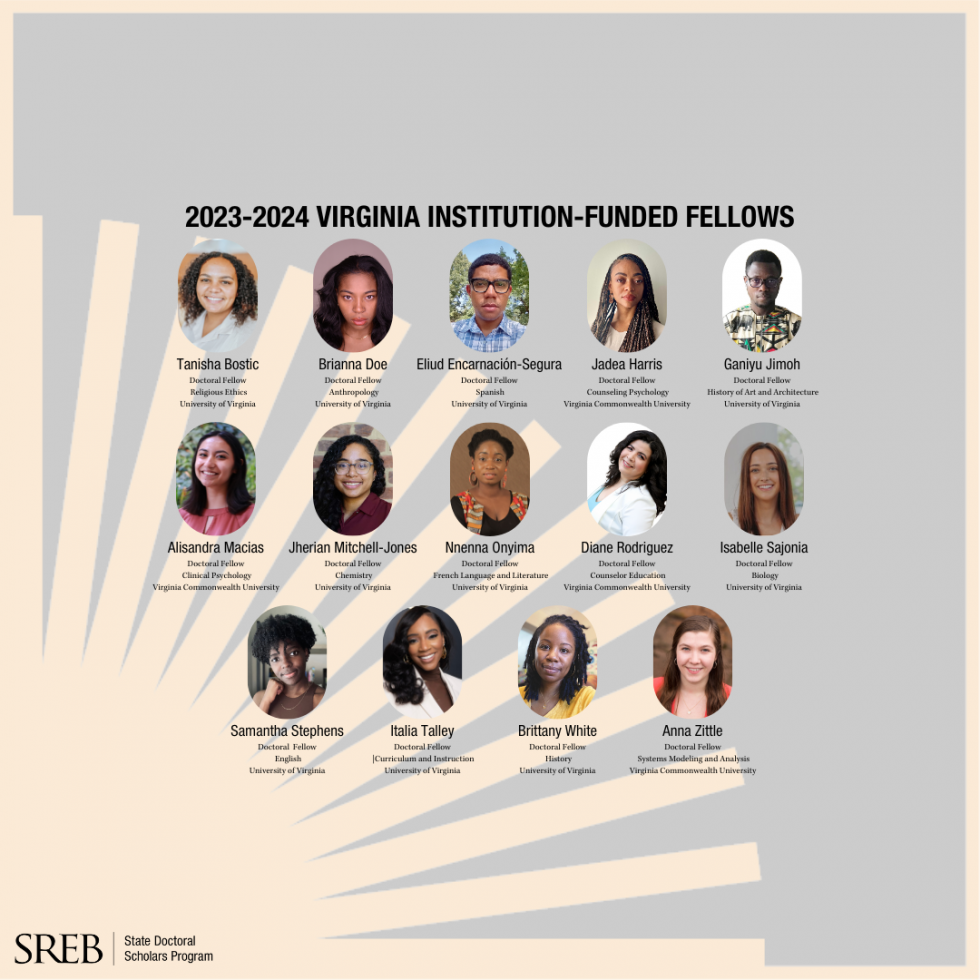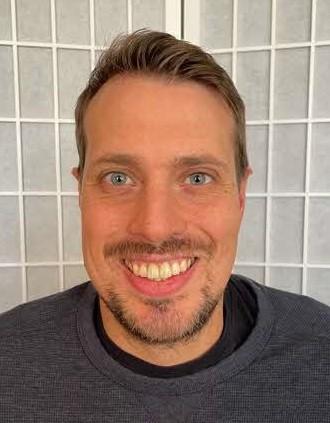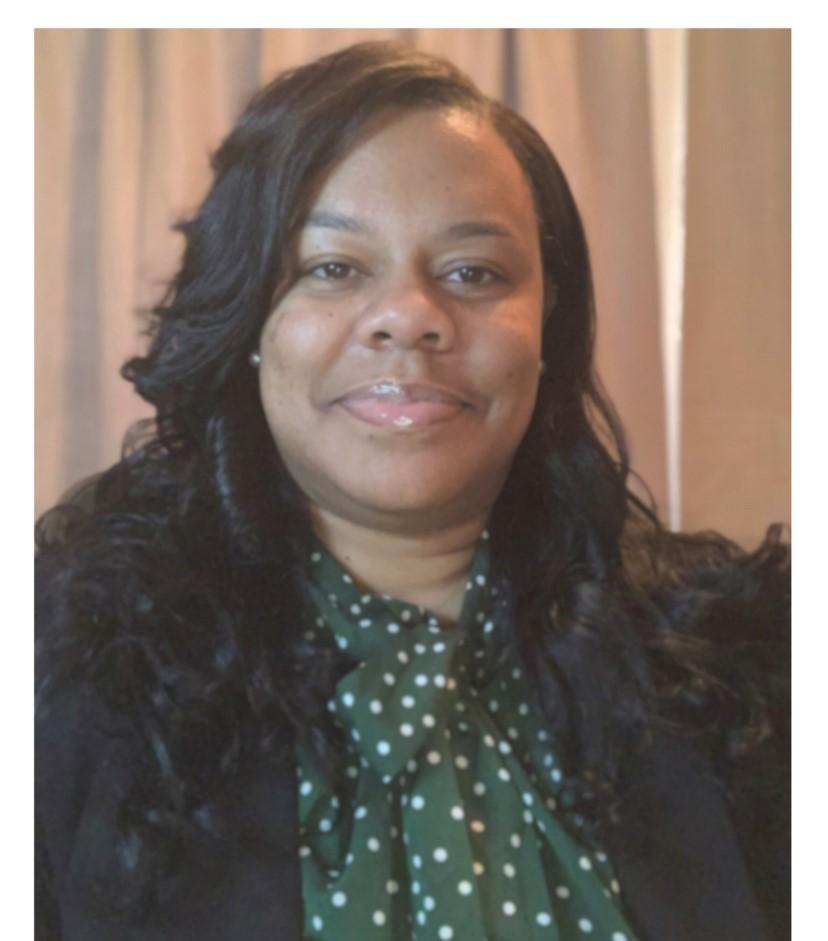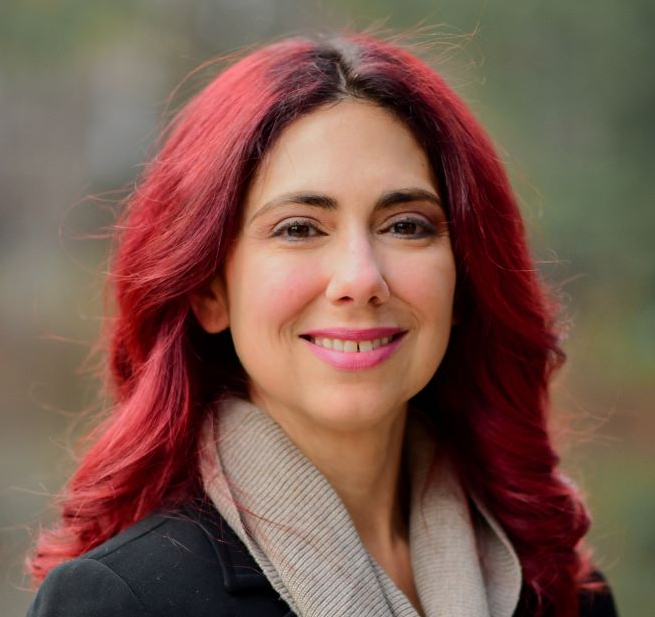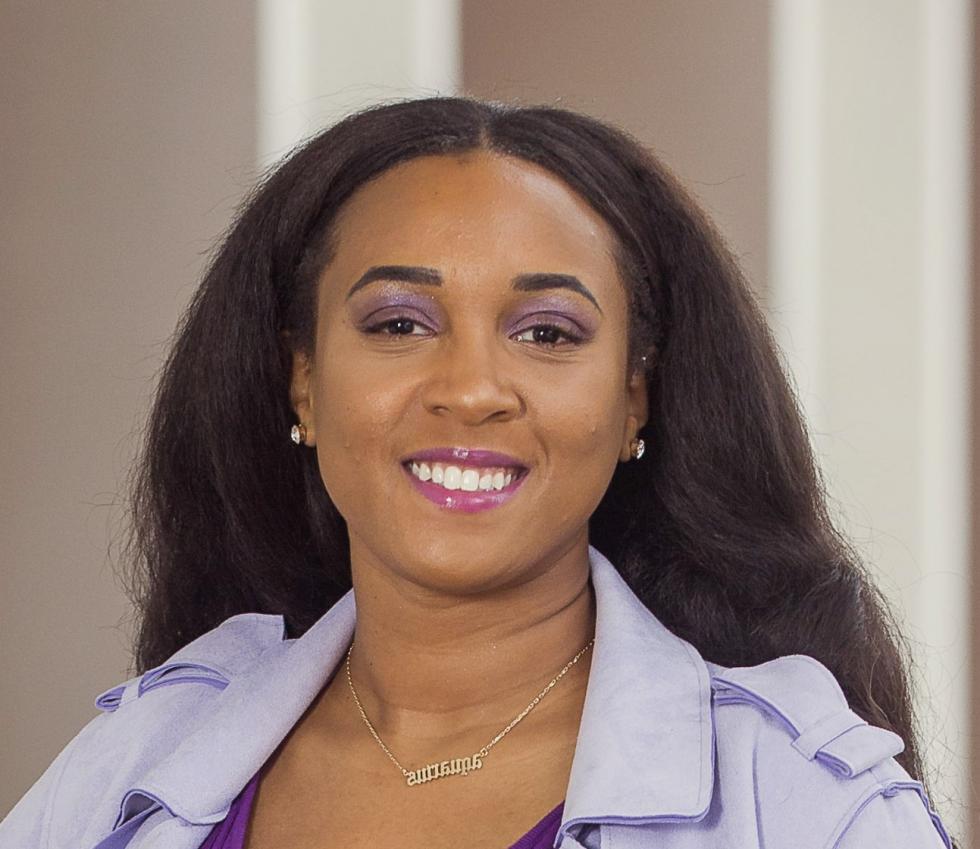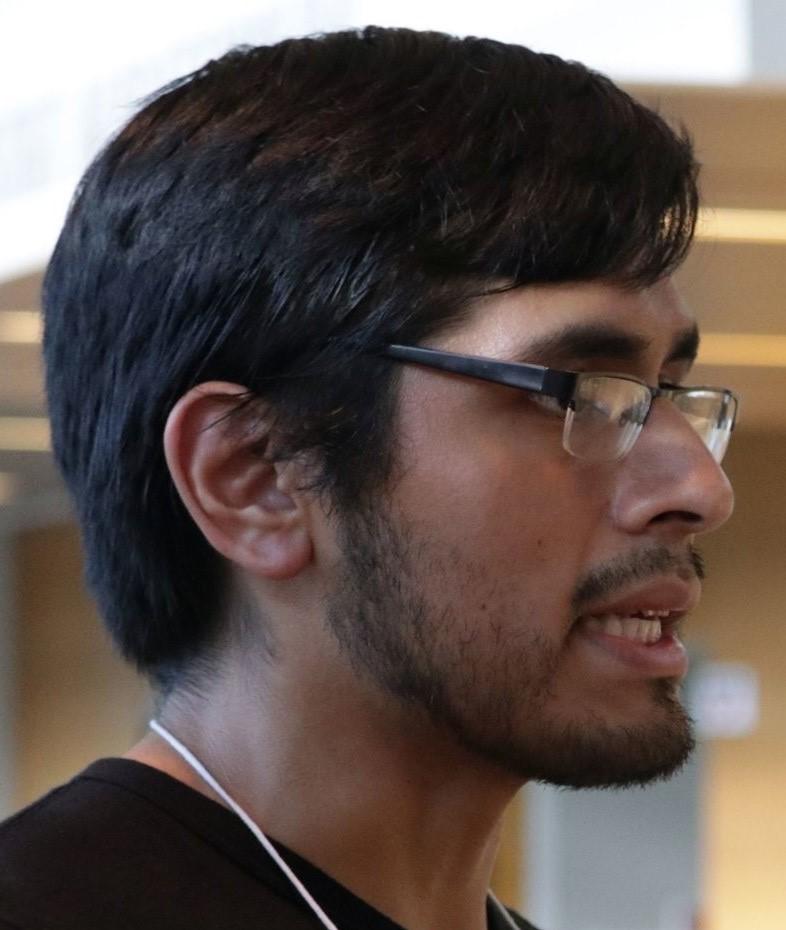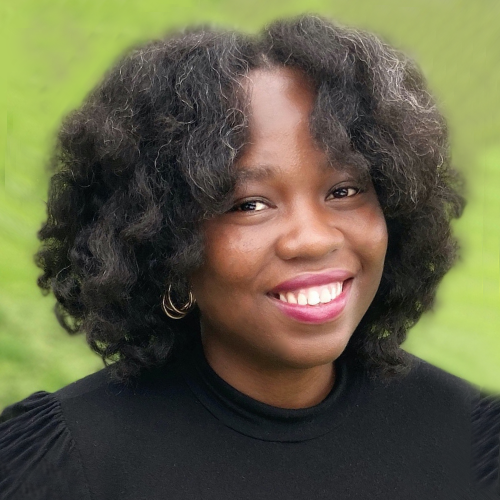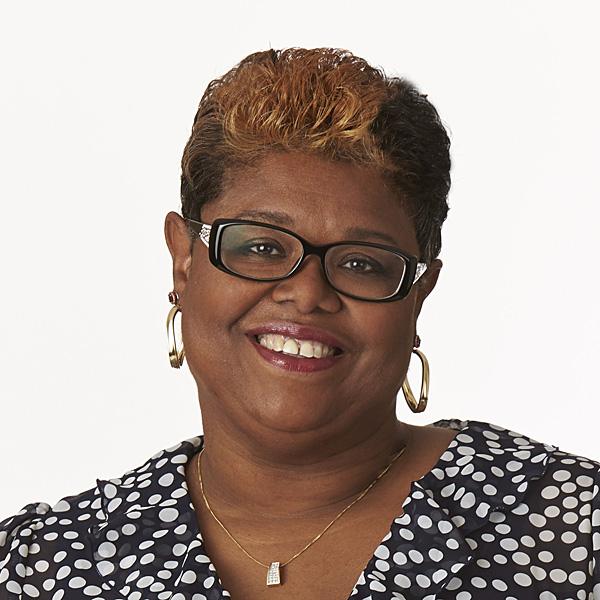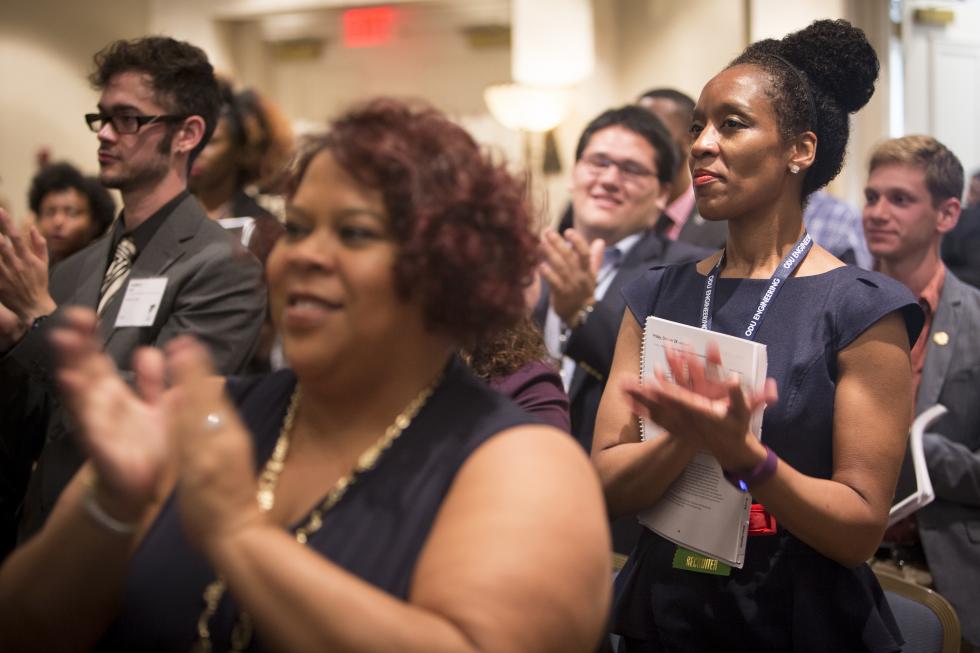Doctoral Scholars Program
SREB-State Doctoral Scholars Program
The SREB-State Doctoral Scholars Program provides multiple layers of support — not only financial assistance and research funding, but also career counseling, job postings and a scholar directory for networking and recruiting. Mentoring and advocating on behalf of scholars is crucial, and support continues into early careers as graduates become faculty members. Each fall, a thousand scholars and young faculty members convene to learn and support one another at the Institute on Teaching and Mentoring.
More than 1,300 Graduates and Counting
The goal of the Doctoral Scholars Program is to increase the number of students who earn doctorates and choose to become faculty at colleges and universities. Since its founding in 1993, the program has supported more than 2,300 scholars who have attended 113 institutions in more than 30 states.
Institute on Teaching and Mentoring
Upcoming Dates, Locations
| 2026 | 2027 |
|---|---|
| October 29-November 1 Crystal Gateway Marriott Arlington, Virginia |
October 28-31 New Orleans Marriott New Orleans, Louisiana |
Tiffany K. Harrison Named Director of SREB Doctoral Scholars Program
Tiffany K. Harrison, Ph.D., has been named director of the Southern Regional Education Board’s State Doctoral Scholars Program. She was promoted to the role after working with the Doctoral Scholars Program under the leadership of founding director, Ansley A. Abraham, who retired July 1.
Ansley Abraham to Retire from SREB
His program has supported thousands of Ph.D. students
Ansley A. Abraham, Ph.D., founding director of the SREB-State Doctoral Scholars Program, has announced his retirement from the Southern Regional Education Board on July 1 after a 40-year career with the organization.
SREB-State Doctoral Scholars Program Cohort
2023-2024 DSP Scholar Cohort Photo Gallery
The SREB-State Doctoral Scholars Program’s 2023-2024 Fellowship recipients are at the forefront of groundbreaking research and innovation in their pursued Ph.D. concentrations.
Communicating Technical Topics to Non-Technical Audiences
SREB-State Doctoral Scholars Program Webinar Series
View the webinar recording >
Explaining research involving complex ideas makes sense to an
audience full of experts in the field, but to a
non-technical audience, the information may be confusing. In this
interactive discussion topics covered included:
Outstanding Institute Alumnus Award
Submissions are open for the 2025 Outstanding Institute Alumnus Award.
For this award the Institute on Teaching and Mentoring is seeking nominations of previous Institute scholars who have made significant achievements and/or professional contributions during their careers. The deadline for nomination submissions is August 31, 2025.
Full details > Outstanding Institute Alumnus Award Nomination Packet
Self-Advocacy in Academia
SREB-State Doctoral Scholars Program Webinar Series
View the webinar recording >
Doctoral students and early career faculty may feel intimidated when meeting with professors or colleagues and should be prepared to advocate for themselves. This webinar was an interactive discussion featuring tips to prepare for challenging conversations and building confidence to overcome the anxiety.
Giving Feedback: The art of speaking up to collaborate and empower
An occasional series from the Doctoral Scholars Program on postsecondary topics
When I first started my Ph.D. program, I was taken aback that none of the talks offered to graduate students focused on how to give feedback to others. Plenty of workshops discussed how to receive feedback, but coming from an industry where feedback was encouraged and expected, I felt we were missing a part of a very important equation.
Pursuing the Ph.D. – How to Get Your Research Published
An occasional series from the Doctoral Scholars Program on postsecondary topics
Publishing a journal article is a significant milestone for a Ph.D. student’s academic journey. It showcases your contributions to your respective field and acts as a validation of your research skills and expertise. The process of publishing can often seem overwhelming and time-consuming, but with the right approach, it can be a relatively smooth experience.
Putting Yourself Before Your Work
An occasional series from the Doctoral Scholars Program on postsecondary topics
After working in research in one capacity or another for the past six years, the most common topic I hear about when speaking with fellow students is stress. We just can’t help but mention the stress of working on a time crunch, the stress of submitting grants, the stress of funding; stress is always an underlying theme to our careers and one that appears to have no end. However, not all is doom and gloom. There are many ways in which we can try to balance our work-related stress, and below are two which can get overlooked.
Structuring Your Dissertation Committee
An occasional series from the Doctoral Scholars Program on postsecondary topics
In graduate school we are bombarded with decisions. We decide whether to be quantitative, qualitative or mixed-methods researchers, what classes to take, and what topic to expand on for our dissertation. One of the most important decisions we make, though, is deciding which faculty members will sit on our dissertation committee.
Starting a Grant-Funded Community or Campus-Based Initiative
SREB-State Doctoral Scholars Program Webinar Series
View the webinar recording >
In this webinar, SREB-State Doctoral Scholars Program alumna and Bob Belle Service Grant recipients Drs. Myrtede Alfred, Karin Block-Cora and Cheryl Swanier shared their expertise on several topics, including steps to conceptualizing an initiative, organizing an initiative from an existing practice, how to leverage funding and build relationships with similar programs, and the connection between service and the tenure-track.
Self-Care and Your Success in Graduate School
An occasional series from the Doctoral Scholars Program on postsecondary topics.
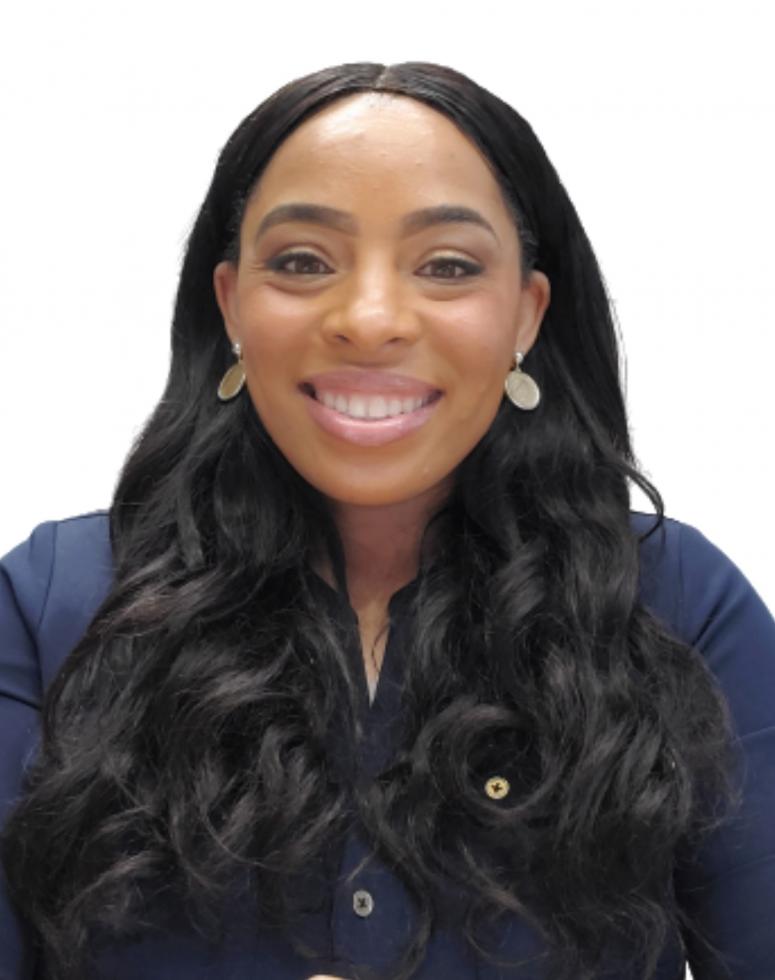 How do you honor your mind, body and spirit? Do you even think it’s important?
How do you honor your mind, body and spirit? Do you even think it’s important?
From 2007-2014 I was a full-time doctoral student in social work at the University of Alabama. The program involved writing an annotated bibliography, writing and defending an integrative paper, taking comprehensive exams, and writing and defending a dissertation. My life was consumed with this and travel between my home state of Mississippi and my surrogate city and state, Tuscaloosa, Alabama. I made little time for self-care. I would leave Tuscaloosa on a Friday and return either Sunday evening or leave at 5:30 a.m. on Monday morning. I missed my family, friends, and the comforts of my Mississippi Delta home life. My home was my outlet.
It’s All About Community
An interview with Ansley Abraham
What’s the best advice to propel a doctoral candidate toward a successful completion of their Ph.D. goal? According to Dr. Ansley Abraham, director of the SREB-State Doctoral Scholars Program, it boils down to connecting with “people who are vested in your success.”
Dr. Abraham has been doling out that advice to doctoral students for over 25 years. In the article below, originally published on the blog – Grad | Logic: Navigating the Ups and Downs of Graduate School, Dr. Abraham shared some of his wisdom in an interview with Dr. Chris Golde.
20 Tips to Survive Graduate School
The Ph.D. journey is full of twists and turns that are easier to navigate with guidance from those who have already walked the path. We asked DSP scholars and Institute attendees to submit graduate school survival tips for those who are still on the journey.
Set goals and balance your time
1. Begin with the end in mind. Have a sense of where you want to be when you graduate and take steps to make sure you are properly prepared when you reach that goal.


